Dear friends, it’s been a challenging time recently for me with my father’s passing, and I wanted to share something with you that may help if or when you walk the path of grieving. Loss hurts. It doesn’t matter whether its someone close to you, a family member, a pet, a close friend, someone you were bonded with or perhaps you’re grieving for the loss of something, a job for instance. Very possibly, it’s some loss that you’ve faced with COVID-19. So many people lost their livelihoods, freedoms, a family member, their health and more throughout this pandemic. Letting go and moving through the grieving process with grace is something our plant friends can help us with. This article really comes from my heart to yours. Through connection we heal. So I’ll be sharing here the herbs that can assist with the various stages of grieving and in particular, those that make us stronger, more resilient and those that nourish us, like a hug in a cup. My journey is the loss of a kind and generous man in my life. Whatever your grief journey is, I hope you find this helpful.
“…plants help people to be happy, to feel natural joy.” – Bennett (2014)
It isn’t about feeling happy though, well not initially. It’s about just feeling okay. As I sit looking out at the trees and the water, cloudy sky and heavy clouds, I’m reflecting on my recent loss of the beautiful soul with the joyous laugh who was my father, and also on an accumulated sense of loss. One I don’t think I’ve had the time to process yet. In 2020 I shifted to predominantly working online – as expected there was a significant drop off in bookings at that time and I was faced with the unknown that was the COVID-19 pandemic gaining pace and then later in the year after a lockdown or two, we approached Christmas. And then I looked forward to seeing my family, but that plan went out the window when a couple of new cases emerged in our area and we were locked down for 6 weeks. Christmas 2021 was the same, no family, no connection…lots of fear in the air. It affects us more than we may think. Because connection plays a big role in healing, particularly from loss.
All of us deal differently with loss. For me, there’s definitely some residual trauma. Losing my mother was incredibly traumatic experience and that grieving process took year upon year to unfold. The thing I’ve noticed is there’s no timeline, time becomes non-existent as soon as the loss occurs. Time seems to stop. In a way, it stops because it brings us inward, makes us face what’s happening in the moment, perhaps this is the body’s way of preventing accumulated trauma and grief….and attempting to keep things flowing within.
So a lot of the herbs I’ll be discussing here are ones that I’ve chosen because they do take us inwards, even as a humble cup of herbal tea, they can help us through this reflective process. I’ve worked with each of these herbs personally and walked my own path with them. They’re our allies when we need to surrender to doing ‘work’ within our emotional bodies. Others I’ll mention are more suitable for healing on a physical level. And then there are the herbs that simply embrace us with their warmth and sweetness and offer us comfort. The ‘treasures’.
My grieving journey unfolding
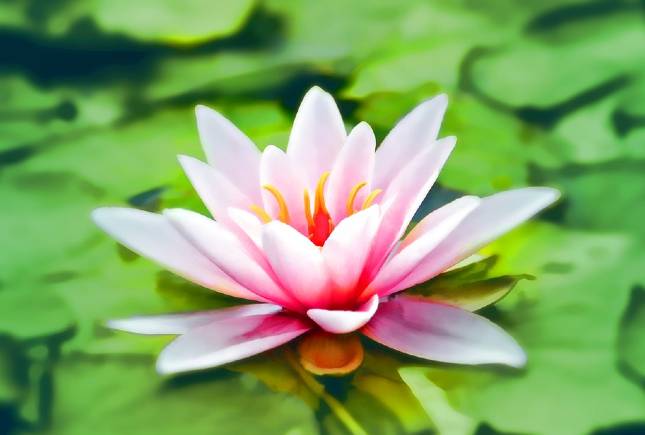
A week or so before my father died, I did a shamanic journey. In the journey one of my guides gave me a pink lotus flower. Another told me to be strong. I didn’t realise the significance of these interactions until I received a message from my brother that my father was in a critical condition, overseas, and by the time I called him back, it was too late. He’d drifted away in his sleep. I realise now, what my guides were wanting me to be strong for.
The Sacred Pink Lotus (Nelumbo nucifera) is historically entwined with grief, from ancient Egypt to China to India and beyond.(1) In particular, ancient Egyptians wore lotus flower garlands when a loved one died, along with other precious flowers like anemone, rose and narcissus. (1). Pink Lotus is one your allies when facing the reality of death. Using the flowers in teas or cooking the lotus root in soups and broths for healing, are a couple of ways you can use the lotus flower in these challenging times. There are so many ancient and sacred flowers associated with death.
Neanderthal peoples (c. 60,000 years ago) used herbs to flavour gourmet meals, perform rituals and in burial rites as well. They used herbs like Yarrow, Hollyhock and Cornflowers. It makes sense that flowers would be the preferred flower part for burials and funerals, when flowers contain the seeds for the birth of a new plant, symbolically they are the plants one chance at reproducing and thus creating new life. Archeologists have found flowers like Salvia spp. (Sage species) lining graves of the Natufian peoples (up to 15,000 years ago in modern day Israel, Jordan, Lebanon and Syria) and evidence suggest this civilization had quite formalized burial rites similar to ours today. (2)
Here’s another flower with thousands of years of use in grieving. A couple of days after hearing the news I made my way to an ethnic store to buy incense and white Chrysanthenum flowers. The TCM name for this herb is Bái Jú Huā. Since then, I’ve had a cup of Chrysanthenum tea each morning. This flower symbolizes death, and can assist us to transition through the initial stages of grief. It also looks so beautiful in a glass mug. Fragile, but full and wholesome. It seemed fitting with our familial links to Asia, as this flower is often the flower of choice when mourning a loved one in countries like China and Japan. According to the Chinese medicine text, the Ben Cao Cong Xin (1751) the Chrysanthenum flower is “thoroughly imbued with the qi of the four seasons, it sprouts in winter, produces leaves in spring, blossoms in summer, and reaches full flower in autumn.” I feel like this pretty flower has been there for me these past week, the bond has been formed, and now I want them in my garden. I want to be a witness to all these stages of growth. You know the feeling?
“Health and disease in the body interact in fascinating interconnected patterns, and when we make sense of our connection to nature – employing herbs and natural therapies – we can shift those patterns to bring the body into greater balance and vitality. Plants heal. Nature heals.” – Groves (2016)
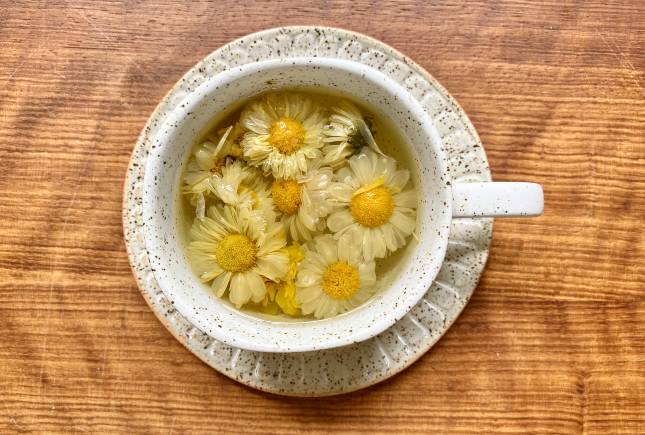
Chrysanthenum tea
I’ve got more herbs in the care pack though, so read on to find the right combination of herbs for you. First, let’s talk about dosage. Dosage is important with teas for grieving.
How to take herbs when grieving
Ideally your herbs are low dose in the initial stages of grieving, so I prefer:
- Teas
- Lattes
- Decoctions (simmering herbs in water on medium heat for 20 minutes)
- Herb infused honey
- Flower essences
- Homeopathics 3X or 6X ideally
This is because the healing needs to take place at the subtle layers of the individual, rather than the physical. Emotions move through us and sometimes reside in us, stagnant, as subtle energies. The larger the dose, the more intense the effect on a physical layer, which can “obscure the subtle, internal level of influence…” (Wood 1987)
In later stages of grieving where we need that physical nourishment, the doses can become larger. However large doses early on in the grieving process should be avoided.
It’s time to look at particular herbs now and how they resonate with us when we’re grieving. I thought about how I could organize this piece according to Kübler-Ross’s five stages of grieving but I realized we’re all different in the way we walk this path. The cycle isn’t linear and we don’t all go through all of the stages (denial, anger, bargaining, depression, acceptance).
So I thought it better to take an holistic perspective, and I’ve categorized the herbs according to the realms they work best with. So you’ll see there’s the digestion realm (our initial disbelief and stagnation with what’s happening), the mind realm (where we get all rationale and totally lost and chaotic), the heart realm (where we fell fragile and vulnerable) and so on. I hope this all makes sense, and I’ve tabulated this approach to explain which realm goes with which classic stage of grief from the psychological perspective.
A dear friend once told me my gift to the world was changing the way people think about health. I guess doing this my way is part of that journey. I always said she was a wise woman. You know who you are! Enjoy the read, I hope it helps you or anybody you’re supporting, navigate the murky waters of grief knowing that nature is holding you and loving you in her own way.
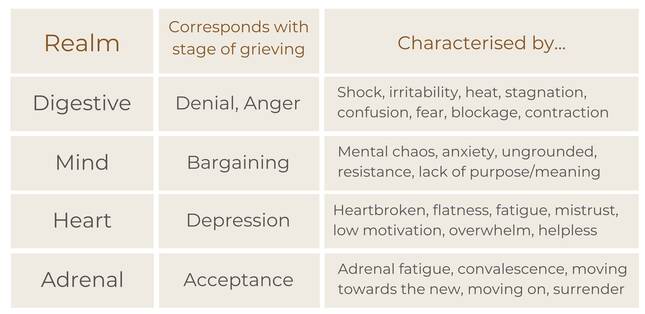
Realms and correspondences with grieving stages (Sze, 2022)
{.1.} The Digestion Realm
Chamomile | Ginger | Rosemary or Chrysanthenum | Mints | Balm
In the early stages of grief we struggle to accept what’s happened and we’re really so ill-prepared for it much of the time. Even if we’re prepared, it all feels so final. In this realm it’s about digesting what’s happening to us with our gut reactions and emotional headspins. We’re so outwardly focused and we feel fragile and vulnerable.
Our first instinct is usually to feel disbelief and denial in in the initial stages of grieving. We can’t believe this really happened, it can’t be real. In the case of death, we have no formal training for this. We haven’t usually prepared ourselves for the reality that everybody dies one day. The time will come for all of us as well. And how do we approach the loss of another with grace and acceptance, when we’re rookies at this?
So we have to gently begin the process of digesting what’s happened and go from there. If you’re feeling stagnant then warming herbs are better in this area. Warmth brings comfort and gently activates the digestive processes. Add cinnamon, clove and honey which draw the medicines to the stomach to act upon it, with their sweet taste. Some of the herbs that can help here are Chamomile (Matricaria chamomilla), Ginger (Zingiber officinale), Rosemary (Salvia Rosmarinus).
On the other hand, if you’re feeling angry, irritable and demonstrably upset, you might need more of a cooling approach. Herbs like Chrysanthenum, Peppermint (Mentha x piperita), Lemon Balm (Melissa officinalis) and Mint (Mentha spp) are best here.
Harmonizing blend to help you digest what’s happening. In a mug combine the following and cover with a cup of water. Leave to infuse for 15-30 minutes, then strain and drink slowly.
- 3 whole Chrysanthenum flowers
- 3-4 Mint leaves (any type of mint)
- Pinch of Cinnamon
- Dollop of honey
{.2.} The Mind Realm
Lavender | Skullcap | Valerian | Chamomile | Tulsi
While all of this unrest is occurring on an emotional level, there’s always the mental impact of loss. We can use calming herbs that nourish our nervous systems here, to settle chaos. One of the best is German Chamomile (Matricaria chamomilla) which helps us mentally declutter, and feel loved and calm amid the chaos that ensues after a loved one passes. We can feel really ungrounded and lost, but Chamomile with its warming and sedating qualities, helps bring us back gently into our sacral chakra. A simple 15 minute hot water infusion works best here, its good to keep things simple. If you want something more nourishing, and you’ve got a poor appetite, try warming it on the stove in milk and adding honey. Other herbs that are great here are Skullcap (Scutellaria lateriflora) and Valerian (Valeriana officinalis).
In terms of mental symptoms we also might battle restlessness and as we deal with the loss of something or someone so important to us, we may also feel we’ve lost a piece of ourselves. Some of us wander around lost and aimless. A really nice comfort here is Lavender, and while you can drink Lavender tea or make a milky Lavender latte, it’s nice to also think about using Lavender to help your mind settle at bedtime with a Lavender pillow.
Lavender pillows are a wonderful gift for yourself or for another. Simple gather a bunch of organic, dried Lavender flowers and place into a couple of sheets of fabric. Stitch together and place near your head when sleeping or relaxing. Pillows can be small, something small enough to hold in your hands is just fine. For a beautiful and comprehensive guide to making your own Lavender pillows, see this post by By Hand London.
Quietening floral blend to help your mind settle. In a small saucepan combine the flowers and milk. Gently warm until hot and the milk is coloured. Strain, add vanilla and honey, and drink slowly, breathing in through your nose and out through your mouth between each sip.
- 1 tsp Lavender flowers dried (or ½ Tbsp fresh)
- 2 tsp Vanilla essence (or vanilla bean seeds)
- 250mL creamy barista style oat milk
- 1 Tbsp honey
Tulsi (Ocimum sanctum) is a sacred native plant to India and an integral part of spirituality, with it’s own beautiful mythological story to boot. ‘Tulsi’ is actually Sanskrit for ‘the incomparable one’, so you can see the exalted status of this plant just from its name. There are a few species of Tulsi used medicinally in Ayurveda and there’s also the Thai Holy Basil (Ocimum tenuflorum). Like Lavender, it belongs to the Mint (lamiaceae) family so it’s also going to be rich in aromatic oils and possess calming properties. I really love its versatility, sometimes I’ll add Tulsi powder to breads, smoothies and juices, chai and honey. You can mix it into ghee to make medicated ghee too. Tulsi helps with cardiovascular health and stress, and what its so wonderful for its calming effects on our hurting hearts while building our physical strength at the same time. It has a purifying action that can be helpful when our minds feel frazzled and chaotic. (3)
{.3.} The Heart Realm
Licorice | Marshmallow | Motherwort | Hawthorn | Rosehip | Rose
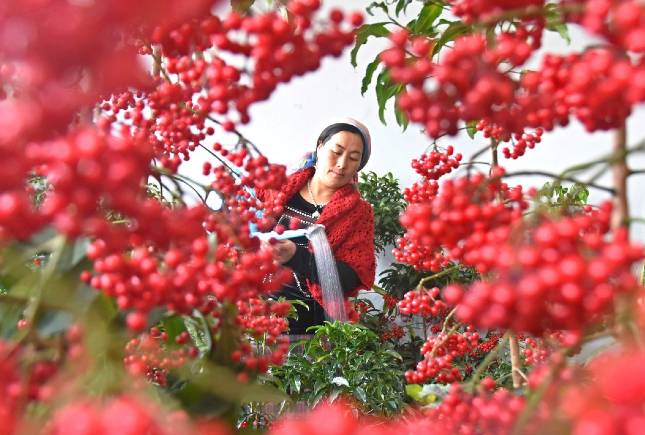
Hawthorn berries
Sometimes we can feel overwhelmed with an underlying sense of unease, something just doesn’t feel right. This is where we’ve moved into a state of disharmony overall and what we need to bring that harmony back, is self-connection.
Sometimes we can feel overwhelmed with an underlying sense of unease, something just doesn’t feel right. This is where we’ve moved into a state of disharmony overall and what we need to bring that harmony back, is self-connection. It’s around here that you heart really starts hurting. It’s important to be gentle, and to have a strong connection with your own heart here. There are two herbs I’d suggest in this stage. Motherwort and Marshmallow. The subtle heart needs to gently open. Mucilaginous and sweet herbs are so supportive here, like Marshmallow and Licorice. Yes, our hearts are hurting, but if they close off, we lose connectivity and we can shut off from those around us who want to support us.
The subtle heart needs to gently open. Mucilaginous and sweet herbs are so supportive here, like Marshmallow and Licorice. Yes, our hearts are hurting, but if they close off, we lose connectivity and we can shut off from those around us who want to support us.
Calm my Heart Infusion
- 1 tsp Marshmallow root (Althaea officinalis)
- 1 tsp Licorice root (Glycyrrhiza glabra)
- 250mL room temperature water
Combine the herbs and water in a cup and place in the fridge overnight. Drink the next morning as a cool infusion.
With heart-calming infusions like this, you can add other cooling herbs like Lime Flower (Tilia spp.) and Lemon Balm (Melissa officinalis). Motherwort (Leonurus cardiaca) is also a specific for the heart.
A discussion of herbs that care for your fragile heart wouldn’t be complete without mentioning Hawthorn. According to Groves (2016), the heart is a primary seat for emotion in eastern health philosophies, and with immense emotion the heart feels overwhelmed and broken. Hawthorn comes from the Rose family, itself a traditional plant family associated with healing from grief. It’s the ally you need when your heart is breaking. Hawthorn berries, flowers and leaves work well in lots of preparation forms.(4)
Another beautiful herb for healing the heart is the Rose itself. It’s a tonic for the heart and helps us heal a wounded heart. Rose wine is a wonderful way to prepare a rose extract, and you’ll find that the combination of alcohol and water work best to draw out the therapeutic chemistry in rose petals and rosebuds. Make it up by using organic dried rose petals and infuse in vodka for 2 – 4 weeks before straining.(5)
Spiced Rose Wine – an essence-rich alcoholic elixir that you can drop dose anytime you’re feeling fragile.
Combine all ingredients together in a pot over medium heat, and brew for 1-2 hours.
- ½ cup Rose petals dried
- 1 Tbsp Cardamon pods
- 1 oranges, sliced
- 2 cinnamon sticks
- 2 Cloves
- 2 Star anise
- ½ tsp Nutmeg powder
- Handful dried currants
- 375mL (1/2 bottle) Merlot wine, or any full bodied wine
- 2 Tbsp maple syrup (or honey)
{.4.} The Tired Realm
Raspberry leaf | Elder | Oat straw | Nettle | Chickweed | Shatavari | Cacao
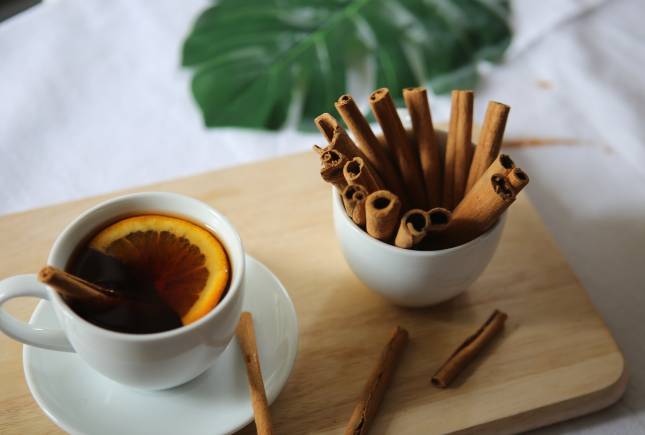
Dandelion root blends nicely with orange and cinnamon.
Grieving is tiring and emotionally draining. We need things to nourish us and strengthen our hearts and build the body up (sustenance). In this realm it’s all about bringing strength and resilience to combat stress and exhaustion. Often what causes that exhaustion is the heart break, absolutely, and also any initial resisting of reality. Now we start the process of surrender. To support us here, the herbs in this section are generally nutritive and tonic. They range from the nervous system restoratives to the adrenal adaptogens. They’re best in milky brews, but many also suit a straight and simple hot water infusion.
This realm is also about acceptance. When we stop resisting what’s really happening, the fatigue will go, the stress will ease. There’s less loading on the emotional body. Nutritive herbs help to restore vitality and strength. Think about herbs like Nettle, Chickweed, Raspberry leaf, Shatavari, Amla, Cacao, Dandelion root and leaf and Oat straw. (Groves 2016) You could mix up a combination of Raspberry leaf, Dandelion leaf, Nettle and Oat straw, and drink 1 tsp in hot water daily, as a tea. The Shatavari blends nicely with Cacao and honey and provides a more full bodied experience.
An ancient plant for later stages of grieving is Elder. It helps us surrender and accept, like the magical tree that it is, offering medicine in the flowers, leaves and berries, its just the rounded hearty medicine we need at this point. You could make an elder berry and flower syrup here and add a tablespoon to your tea.
Elder berry and flower syrup
Combine the Elder berry and the water in a small saucepan and bring to the boil. Then turn down heat and simmer for 20 minutes with the lid off so that you reduce the water to around ½ it’s original amount. At the end, throw the flowers in, put the lid on, and leave to infuse for 30 minutes. Strain, and put the liquid back into a clean pot. Heat and add honey until dissolved, stir and pour into a bottle ready for use. Keep in the fridge for up to 6 months.
25g Elder berries
500mL Water
25g Elder flowers
250g Honey
Another herb for this realm and stage of acceptance is Rosemary, the herb of remembrance. Ancient Egyptians placed Rosemary in tombs to remember the departed as far back as the 4th century BCE. You can also add Rosemary to pillows, baths and food.
“There is a great power to remembering, because to hold something in memory is to keep it alive.” – Deer (2011)
Creating your Herb Grief pack
You could create a set of herbs for your own support during your grieving process or perhaps make up a herb grief pack for a friend in need. Think about making things that last longer than a standard infusion (cup of tea) too, like herb-infused honey, flower essences, dried tea blends and elixirs (blends of herbs with fruits, honey and spices). Herbs complement other therapies that can assist in grief like breathwork, nature bathing, warm baths, acupuncture, counselling, meditation, reiki, mantra, journaling and yoga.
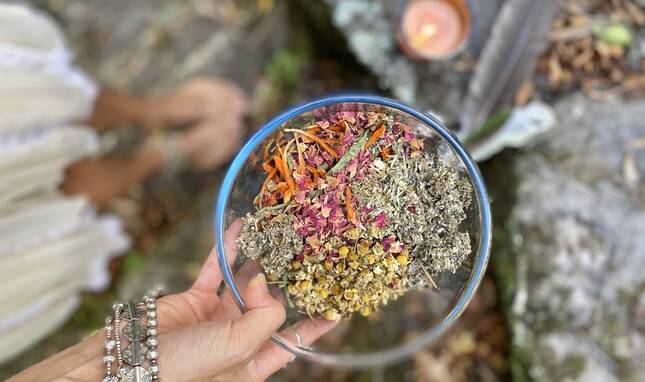
Rose, Chamomile and calming herbs are great for the tired phase of grieving.
If you’re interested in learning how to make elixirs the traditional way? Try my fully online ELIXIRS course on the Wild Medicine Academy.
Summing up
I wonder if you have your grief herbs, what teas bring you comfort when you’re feeling anxious or sad? I’d love to hear from you, please share below in the comments if you like. Know that you’ll be helping many others, not just me, but everyone who reads this article.
Before I sign off, a counsellor or someone you can confide in who can provide structured support and perhaps someone who’ll give you some tools and practices for dealing with grief, is incredibly valuable. While these plants can assist and comfort, and help with healing, there’s nothing like having the support of a trained therapist.
Also its good to buy your flowers from a reputable source. With things like Pink Lotus or Chrysanthenum, you may not find them available organic and in bulk, but you’ll find most others online at Austral herbs or Herb Wholesalers, or your favourite online dried herb seller.
Thankyou for reading, and if you comment below, thankyou also for sharing. I hope you like these recipes and most of all, may your experience with grief and loss be full of comfort and hope. May the loss that’s manifested in your world, become an opportunity for reflection, growth and profound awareness. Heal well,

Share on Facebook
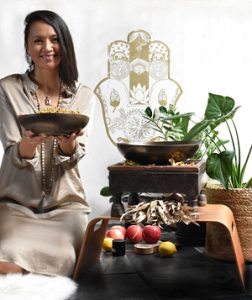
Hey there! Welcome to my world of totally natural and powerful healing medicines. Medicines from nature. Medicine from Source. I’m a naturopath and herbalist with extensive clinical experience working with a range of health conditions including hormonal, metabolic, mental health, sleep and more.
I’ve brought together years of clinical and teaching experience, academic skill and curiosity to bring you this blog. I hope you enjoy it! If you do, leave a comment, I’d love to hear from you!

References
- Warnes, K. (2022) Flowers are entwined in human grief. [website] Stories in Science.
- Archaeology: Flowers in ancient burial rituals: [website]. (2013, Jul 09). New York Times
- Dass, V. (2013) Ayurvedic herbology – East and West. Lotus Press, USA.
- Groves, M.N (2016) Body into Balance – An Herbal Holistic Self Care. Storey Publishing. MA, USA.
- Bennett, R.R (2014) The Gift of Healing Herbs. Penguin. USA
- Wood, M (1987) Seven Herbs – Plants as Teachers. North Atlantic Books, Berkeley, USA.
- Brown Yau, J., & Genova, L. (2019). The body awareness workbook for trauma : release trauma from your body, find emotional balance, and connect with your inner wisdom (Ser. Reveal press spiritual growth workbook). New Harbinger Publications.
- Buckley, C (2022) An herbalist shared the best plants for navigating each stage of grief. [website] The Good Trade.
- Deer, T.S. (2011) Wisdom of the Plant Devas – Herbal Medicine for a New Earth. Bear & Co. Canada.
- Zerdy, J. (2019) Six Herbs for Grieving. [website] Mindfulness and Grief.

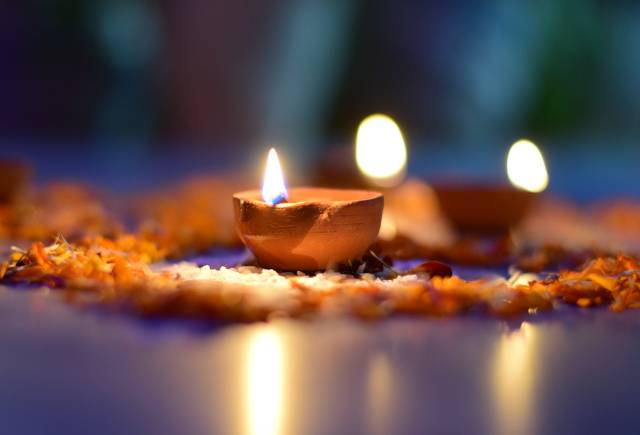

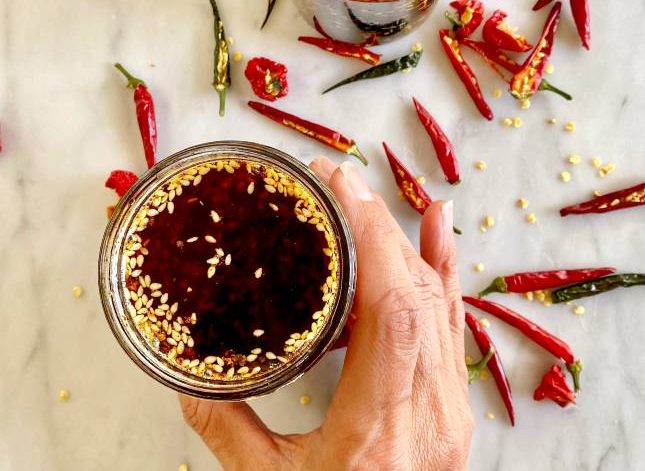

2 Comments
This article on grief was beyond words
I think I’ll find the information very useful in my work
Do you make any grief Teas or products as I would be interested
Hi Danielle, this so kind of you, thankyou. I’d be happy to talk about grief teas with you, just pop me an email when you’re ready. Love and Light, Sulin